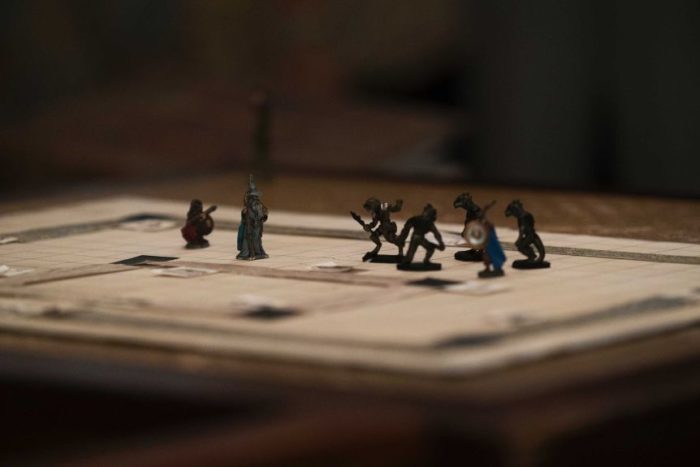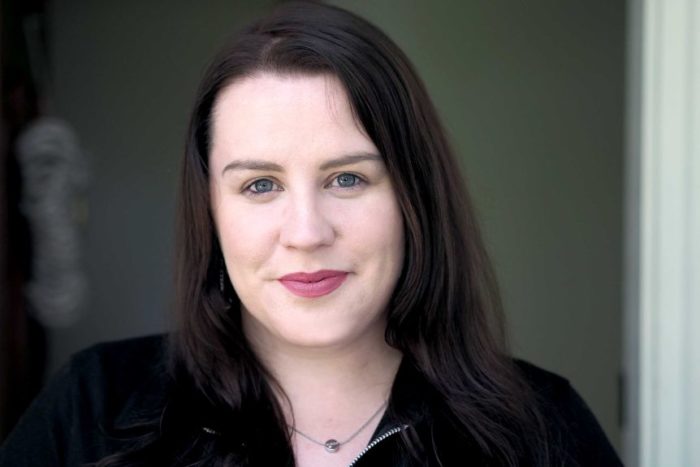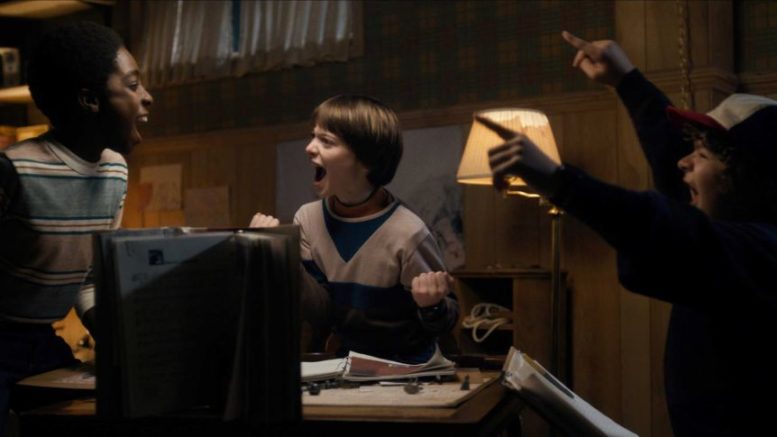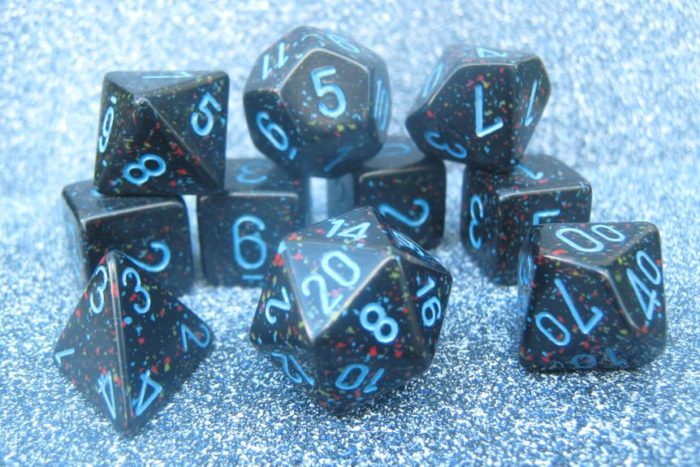Like an entire generation of nerdy 80s kids, American writer Alexander Chee spent whole weekends of his childhood playing Dungeons & Dragons.
“My friends would come over and we’d play late into the night, in the basement of my parents’ home,” Chee told Claire Nichols on The Book Show.
“This continued well into high school, it was pretty all-consuming … [and] I do think that it had a profound impact on me becoming a writer.”
Chee, author of How to Write an Autobiographical Novel and The Queen of the Night, is far from the only writer who has been obsessed with, and shaped by, the fantasy role-playing tabletop game.
Bestselling Irish crime writer Dervla McTiernan (The Ruin, The Scholar and The Good Turn) says: “I feel like there’s a secret tribe of writers who were all D&D [Dungeons & Dragons] nerds when we were kids.”
“It can’t be a coincidence that if you scrape the surface of so many writers, you find a Dungeon & Dragons player underneath.”
Novelists as diverse as Ta-Nehesi Coates, George R. R. Martin and China Mieville, and screenwriters Craig Mazin (Chernobyl) and John August (Big Fish), are amongst the game’s legion of fans.
Anna Spargo-Ryan, Australian author of The Gulf and The Paper House, says she knows players who have been playing the same D&D game for over a decade, returning to the same world, characters and story.
“Of course, writers love doing that. It’s just like an endless book that nobody has a deadline for … that is always evolving, which is exactly the best kind of story,” she says.
‘Choose your own adventure’
D&D first came out in 1974 and is now in its 5th edition, having firmly lodged itself into the pop culture vernacular, spawning its own novels and feature films (with a new one in development) while regularly popping up on screen — from E.T. and Freaks and Geeks, to Community and Stranger Things.
“It’s a very complex game … a very multifaceted, layered, deeply storytelling-based game,” says Spargo-Ryan.
Briefly put: in a game of D&D, a dungeon master (or DM) directs and describes the action, drawing the story from either a D&D book or their own design, to set the players on a quest.
The rest of the players form an adventuring party who must decide how to overcome challenges thrown at them through the story.
A roll of the dice (including the famous 20-sided one) determines the outcome of the players’ choices, which impacts on the direction of the game.

Chee says: “It’s almost a choose your own adventure, except that the dice are doing a lot of the work.”
McTiernan warns that “the rules can be relatively complex … it will seem quite intimidating. But in gameplay, when you’re actually playing, there’s very little of that.”
‘Something between storytelling and gambling’
“The point of the game is to continue … So there’s no there’s no losing, there’s no winning. It’s all about the creation,” says McTiernan.
Chee started playing the game when was 12 years old and became a DM soon after, eventually coming up with his own campaigns.

“It’s something between storytelling and gambling … there’s a certain place in the gameplay where you give up control — that’s the roll of the dice.”
He says being a dungeon master had a direct impact on his development as a writer.
“At a very basic level, it was watching people hang on my words, watching them waiting for the next thing I would say, noticing how the way I would tell the story of the game would affect their experience of the game,” says Chee.
“It was a very intimate storytelling experience.”
The other element that was foundational for Chee’s writing was the need, as DM, to think through the many possible situations that your players might encounter or activate.
“That’s a lot like being a writer; thinking of the reader’s experience of the story.”
Building characters and worlds
As a kid, McTiernan often struggled to find others to play the game with her — but that didn’t stop her from poring over D&D manuals.
“I was addicted to reading as a child. I just could not get enough story, and Dungeons & Dragons just offers more story, but in a creative way,” says the writer.

McTiernan recalls reading a D&D Wilderness Survival Guide cover to cover as a kid, which showed her how to draw maps and deal with climate in the game.
“If you were a fantasy writer, you couldn’t think of anything better from a world-building perspective,” she says.
Unlike Chee and McTiernan, Spargo-Ryan was introduced to D&D as an adult, by her boyfriend.
“D&D is so much like writing. That was something that I had no idea about when I started playing it,” she says.
“Everything that you do to create, understand and continue to develop your character definitely helps with writing.”

Rather than taking on the role of DM, Spargo-Ryan enjoys being part of the adventuring party and taking on a character, like a half-elf bard who has a familiar (animal sidekick) cat called Craig.
“Staying in character is a really important part of Dungeons & Dragons,” she says.
“If the adventuring party comes across some conflict and they have to resolve a problem, you’re not meant to do it however you would … but to actually act the way that your character would act — that’s a really useful skill [for writers] to practice.”
When players are establishing their characters at the start of the game, they have to fill out “character sheets”, which include a section for physical characteristics and personality traits.
Chee, who teaches writing at New Hampshire’s Dartmouth College, says these character sheets can be a useful tool in creating fictional characters.
“This focus on breaking down the aspects of the character into traits — that the character themselves may not think about — is an important part of being a writer,” says the author.
Collaboration
Despite the best plans, the dungeon master cannot control the way the players behave, and must adapt their story on the fly — which is why, Spargo-Ryan says, “it’s more like improv than writing, in a way”.
Popular Australian podcast Dragon Friends is based on a live show where DM Dave Harmon, with the help of Ben Jenkins, guides a cast of comedians — including Michael Hing and Alex Lee — through a game of D&D.
Harmon was the only one who had played D&D before the podcast, but the entire cast has plenty of improv experience.
Which comes in handy when Harmon and Jenkins (a writer and producer for The Checkout, Tonightly and The Feed) are forced to ditch whatever they’ve planned in response to their players’ unpredictable moves (one entire season was derailed by a guest performer — comedian Tom Walker).

“The fact that you write so much more than you use is an excellent exercise in writing, and an excellent exercise in not killing your darlings, but having your darlings killed for you,” says Jenkins.
“I’m much less precious about ideas now, and I’m much more willing now as a writer to just throw an idea out there or to just write it and put it out there.”
Importantly, this isn’t your usual D&D game: the Dragon Friends are performing rather than purely playing; listeners are privy to a group of writer comedians co-authoring a wild, funny, rambling story, using the mechanics of D&D.

Screen Australia recently funded the group to develop a fictional web series, and after all the freewheeling, unscripted chaos of their podcast, the seven writers are back to stricter scripting.
“After doing basically collaboration on stage as entertainment, suddenly just doing it by ourselves in a writer’s room feels like a breeze … it’s made us more collaborative,” says Jenkins.
His experience working on Dragon Friends has also inspired Jenkins to try his hand at writing short stories, for the first time.
“You get your flying hours up in creativity, writing, ideas and structure … So it’s actually given me the confidence to write some short fiction.”
Article plucked from:
https://www.abc.net.au/news/2021-01-31/dungeons-and-dragons-writing-games-narrative/13082620


Be the first to comment on "What Dungeons and Dragons can teach writers about collaboration and crafting narrative, characters and worlds"